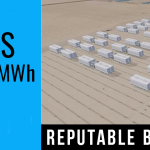
“Hard cases make bad law,” or so goes the old legal adage. In light of the Federal Energy Regulatory Commission’s broad attack on state and local jurisdiction in its recent denial of rehearing in Order No. 841, we would suggest you can add, “Popularity contests make for bad overreach.”
At issue are matters related to how energy storage resources will connect to the grid and be compensated for the services they provide. And by any measure, storage is the popular new kid in the school of energy resources. It’s not hard to see why. Energy storage helps solve one of the great conundrums of the electricity world: the need for electricity to be generated at precisely the time it is consumed.
The more widespread adoption of energy storage holds the potential of making markets more efficient and better enabling resources like wind and solar, whose Achilles’ heels are their intermittency. It’s not hard to see why FERC, and regulators generally, have a crush on the new kid.
Alas, infatuation can lead to decisions with far-reaching consequences. That brings us to the Order No. 841 rehearing requests.
A sweeping expansion of federal authority
A broad coalition of interveners, from non-profit public power, to rural electric cooperatives, to investor-owned utilities and state utility regulators, pointed out the obvious: the way FERC went about effectuating Order 841 was through a sweeping expansion of federal authority over matters once thought to be solely outside of its jurisdiction.
Specifically, FERC took aim at storage resources embedded within distribution assets. Under the construct of the Federal Power Act (FPA), FERC is supposedly handcuffed when it comes to regulating the distribution side of the utility business.





